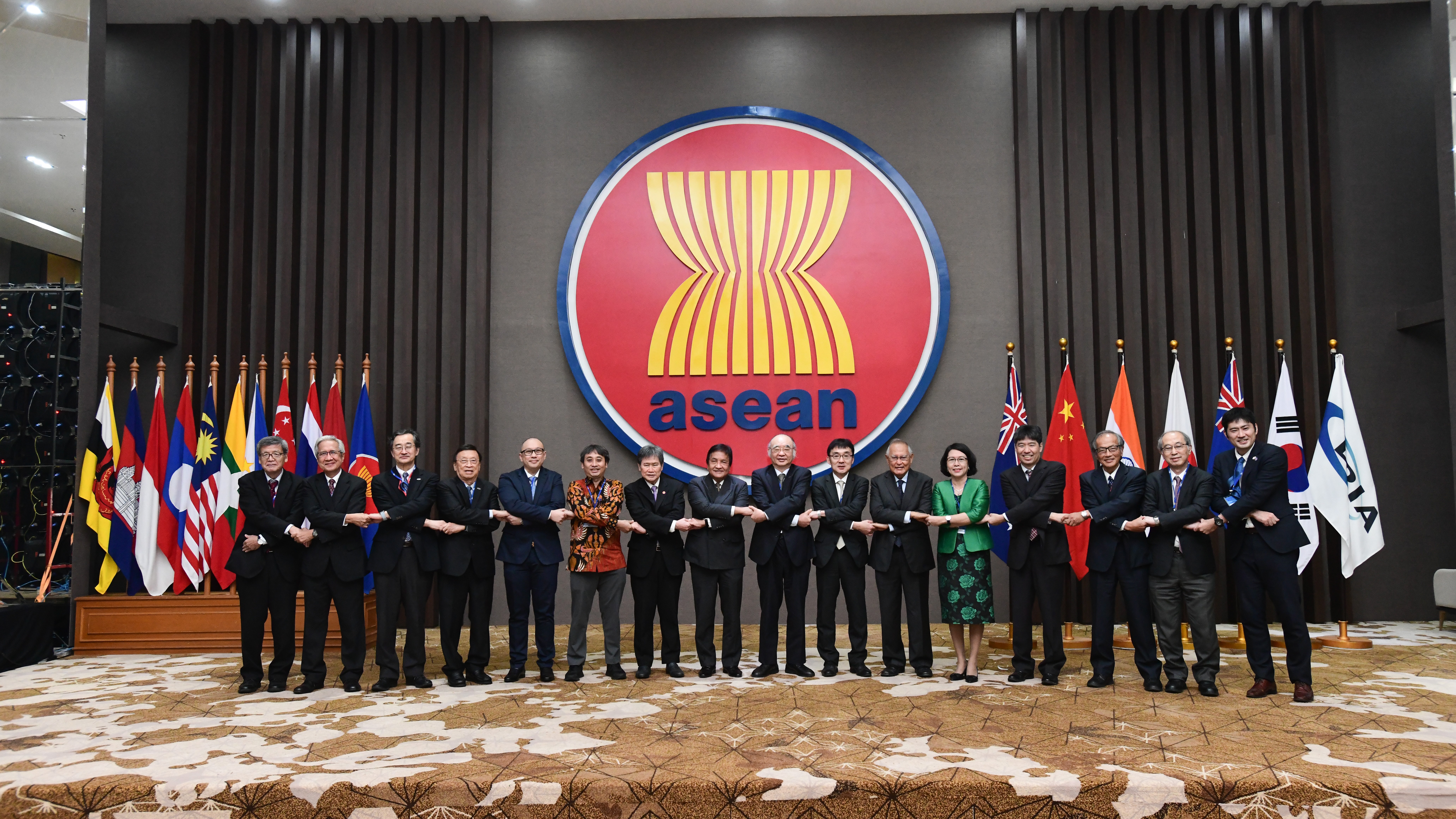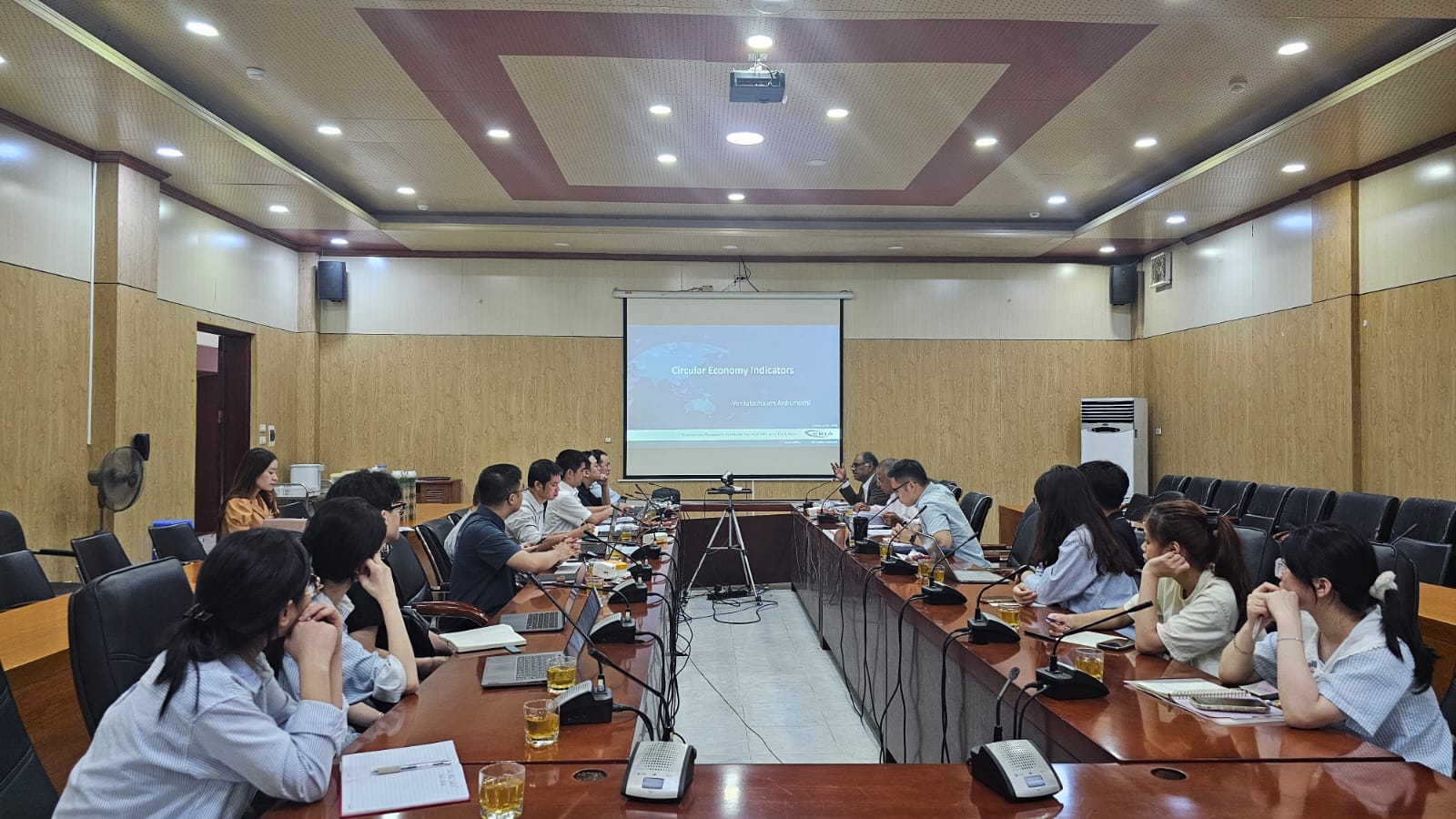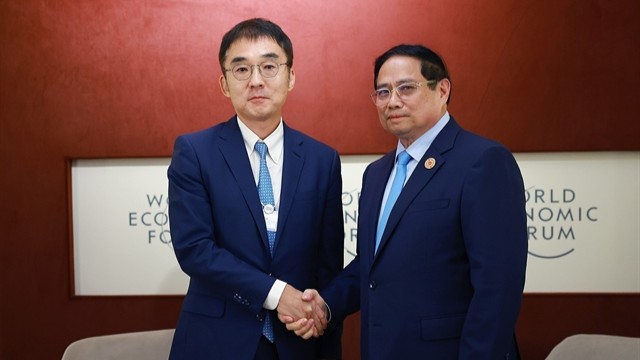METI Lauds ERIA’s Programmes
Date:
2 December 2022Category:
NewsTopics:
Governing BoardShare Article:
Print Article:
Jakarta, 2 December 2022: The Economic Research Institute for ASEAN and East Asia (ERIA) has been strengthening economic-oriented connectivity through its research and activities that promote economic progress and well-being in the region. This assessment was made by Mr Nishimura Yasutoshi, Minister of Economy, Trade and Industry (METI) of Japan, at the 2nd Extraordinary Governing Board Meeting held at the headquarters of ASEAN Secretariat. The 3-hour interactive meeting touched on economic issues that would speed up the post–COVID-19 pandemic economic recovery.
‘ERIA has been working to improve connectivity by increasing investment in Asia, promoting economic partnership agreements, including RCEP [Regional Comprehensive Economic Partnership], developing infrastructure, and building a reliable supply chain’, said the minister in a speech read by Mr Watanabe Tetsuya, Special Advisor to the Minister. He said that given the current world situation, it was important to grow and to solve social issues and provide sustainability to ensure that Asia was on a sustainable growth track. He added that it was timely for ERIA to launch a new centre to utilise digital innovation and achieve a sustainable economy. He announced Japan’s budget of JPY5 billion for the project.
On the occasion of the 50th anniversary of ASEAN–Japan diplomatic relations, the minister reiterated Japan’s goal of working with ASEAN—seen as the next engine of growth—to overcome mutual challenges by establishing a strong digital economy, realising carbon neutrality, and coping with aging societies.
’Together, we will create a vision to illustrate an ideal future for mutual prosperity while ensuring that the voice of the business sector is taken into consideration. We would like to work with ERIA to advance the future of ASEAN by making the supply chains more sophisticated and creating businesses that will solve social issues,’ he said.
Mr Koji Hachiyama, ERIA’s Chief Operating Officer, briefed the board on ERIA’s contributions to Cambodia’s ASEAN chairmanship and Indonesia’s Group of Twenty chairmanship. Prof Fukunari Kimura, ERIA’s Chief Economist, reported the institute’s research and activities over the years. He said that despite the COVID-19 pandemic, ERIA has been active in research and activities that are useful for ASEAN, including networking with international institutes.
Prof Jun Arima, ERIA’s Senior Policy Fellow for Energy and Environment, informed the board meeting of the outcome of the Sharm El-Sheikh Climate Change Conference (COP 27) in Egypt, which he attended. He discussed the trajectory of decarbonisation in the ASEAN region, saying that ASEAN countries are making vigorous efforts in energy transition towards carbon neutrality albeit on different pathways. He added that, in the short run, fossil fuels would continue to have a large share of energy sources in Asia.
ASEAN Secretary General Dato Lim Jock Hoi urged ERIA to provide input to the ongoing discussion on ASEAN Vision 2025 and to include Timor-Leste’s future membership in ASEAN in its research. He called on the ASEAN Secretariat and ERIA to closely work together so that the latter’s research would cover areas ASEAN was working on.
Prof Kimura reported that despite the COVID-19 pandemic, ERIA’s research activities have continued unabated with regular publication of research, policy briefs, disunion appears, journal articles, and events and media presentations. He added that the scope of research had expanded in all units, including economics, energy, environment, agriculture, and healthcare.
The board members from Australia, Brunei Darussalam, Cambodia, China, Indonesia, Lao People’s Democratic Republic, Malaysia, Myanmar, New Zealand, Singapore, and Viet Nam shared their assessments of and insights on ERIA’s online and offline research activities. They recognised ERIA’s growing reputation as an international economic think tank and the high quality of its research work.
They expressed support for ERIA’s future research in deepening economic integration, narrowing development gaps, and sustaining economic development. Recommendations were made regarding the innovative approach to joining the private sector in leveraging ERIA’s future financial sustainability and other areas of cooperation, including capacity building in digital transformation, small and medium-sized enterprises, green economy, social inclusion, and women’s empowerment.
Dr Cielito Habito, Chair of the ERIA Governing Board, moderated the meeting, with the 13 board members attending either in person or online.

.jpg)
.jpg)
.jpg)









